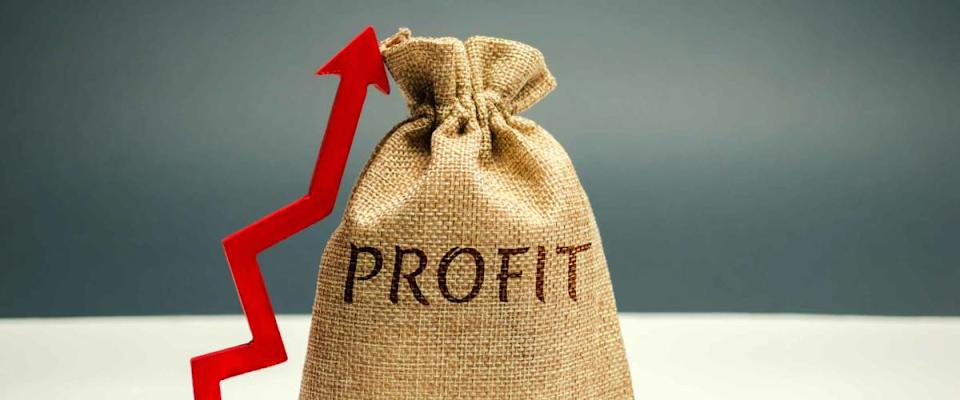It's not too late to get a COVID 'stimulus check' from your auto insurer

Now that President Joe Biden is letting Congress decide whether to cut a fourth stimulus check, the prospects for another round of cash payments are unclear at best.
But here's the good news: Not only is the IRS sending out checks, in the form of "plus-up" payments for many Americans who previous didn’t qualify for the entire $1,400, there may still be an opportunity to convince your car insurance company to give out some more COVID stimulus cash of their own.
Some providers, having seen their profits soar amid the great driving slowdown of 2020, already extended discounts and rebates to policyholders. And government officials in some states continue to push insurers to give even more relief.
But, elsewhere, insurers are already raising premiums, signalling that their willingness to pass along pandemic windfalls may be waning.
So if you've been wondering why you're paying full price for insurance while your car still mostly sits in the driveway, here's how you might yet get a discount from your insurer, plus a few other strategies to slash your car insurance bill when money is tight.
Insurers profit from less driving

Throughout the pandemic, restrictions on business activity and other parts of normal daily life have caused overall driving to drop well below pre-COVID levels, according to the U.S. Bureau of Transportation Statistics.
And that has meant big increases in profits for auto insurers, according to research by consumer advocates. Progressive reported an 82% increase in net income, while Geico’s pretax earnings tripled during the second and third quarters of 2020, just to name a couple.
The American Property Casualty Insurance Association has said that, in recognition of the situation, insurance providers gave out more than $14 billion in refunds and credits to policyholders over 2020.
More recently, Travelers released research showing that, as driving has diminished during the pandemic, there has been a corresponding rise in bad habits like distracted driving and speeding, suggesting American roads continue to present risks to insurers despite being less crowded.
A long-simmering dispute

The fight for auto insurance relief has been raging for months.
In December 2020, the Consumer Federation of America and the Center for Economic Justice sent a public letter to state insurance commissioners, saying auto insurers should be required to deliver a new round of refunds to policyholders.
An analysis by the two groups showed crashes down 31% since the beginning of the pandemic compared to the year prior.
Then, in February, a set of class-action lawsuits were filed in Nevada, with the plaintiffs claiming that 10 leading auto insurers were keeping premiums unreasonably high during the pandemic. A similar class action against Geico was recently certified in Illinois.
In March, California’s insurance commissioner ordered providers to extend more discounts to auto policyholders, saying companies have “continued to overcharge drivers.”
And in Massachusetts, Attorney General Maura Healey has recently sent several letters to the state's insurance regulator, urging it to order providers to pass along more of their pandemic profits.
Meanwhile, State Farm has received approval to raise premiums by some 4% in the state of Louisiana, only months after cutting rates in the state.
The insurer has also filed for increases in Arkansas, Connecticut, Georgia, Maine, Michigan, Pennsylvania, Virginia, and West Virginia, according to S&P Global Market Intelligence.
So can I get free money from my insurance company?

An analysis by the U.S. Public Interest Research Group Education Fund took a state-by-state look at how insurance companies repaid parked motorists last spring.
“Regardless how much each company profited, the majority of insurers didn’t give back more than half of one month’s premium,” the consumer watchdog says.
But some companies didn’t issue refunds or cut rates unless customers called and asked.
That means you could get free cash just by contacting your insurance agent. With pressure mounting, your insurer might be open to reviewing your premium, assuming you’re still driving less than ever. Make note of how your habits have changed, such as the distance you’re not driving while you work from home.
Other ways to shrink your premiums, starting today

If your insurance company won’t give you a pandemic discount, there are still a number of ways to cut down on your insurance bill.
Drop optional coverage
Some auto insurance policies include extras that you may be able to do without for a while. For example, can you cut out the option that pays for a rental car while yours is at the repair shop?
Removing these extras can save you a few bucks, just make sure you’re still meeting your state’s minimum liability coverage and are still protected in case of an accident during those few trips to the grocery store.
Switch insurance providers
If your insurer won’t give you a break, maybe you can find a new one that will.
Even if you can’t switch to a company with pandemic discounts, shopping around for the best rate can still help you lower your bill.
If you haven’t comparison-shopped over the last six months, you could be wasting more than $1,000 per year. With a free quote-comparing service, you could find the best price in minutes.
Suspend your car insurance
In some cases it may be possible to put your insurance on hold if you’ve completely stopped driving during the pandemic.
This path could be tricky — it could result in fines or a suspended registration from the DMV, and it may not be possible at all if you’re making car payments to the bank.
You’ll also need to store your vehicle in a safe and secure spot, because you won’t have coverage from nondriving-related losses, like theft.
What if I need even more savings?

If saving on car insurance isn’t enough, here are a few more ways to give your bank account a boost until the economy bounces all the way back.
Slash your other insurance bills. By doing some simple comparison shopping using online tools, you can save hundreds on your homeowners insurance and get an instant life insurance quote.
Invest your spare change. Using a popular investing app you can automatically accumulate “change” every time you use your debit card and let the app invest the money for you in a diversified portfolio of stocks, bonds and other reliable investments. You won't even notice the deposits, but you will notice the returns.
Cut the cost of your debt. If you’ve been relying on credit cards throughout the pandemic, expensive interest is bound to catch up with you. A lower-interest debt consolidation loan can fold your balances into a single, lower-interest payment — and help you find freedom from your debt sooner.

 Yahoo Movies
Yahoo Movies 